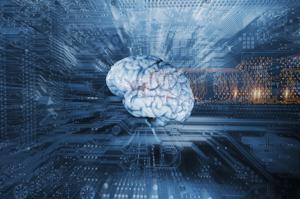How artificial intelligence could impact manufacturing ERP technology
Artificial intelligence (AI) is one of the most promising frontiers in the future of manufacturing ERP technology. While AI itself has roots running back to the mid 20th century, only recently has it become sufficiently advanced to have practical applications in real-world ERP deployments.
As a quick refresher, AI refers to computer programs that can “think” (i.e., run) like humans, with the ability to interpret information in real-time and adapt to changing circumstances. Machine learning and deep learning, which refer to AI programs that can learn without human supervision, are both subsets of AI.
In the context of ERP systems for manufacturing, AI can support a variety of functions, ranging from uploading progress reports to assisting with customer service. Let’s look at a few examples of what AI-enhanced ERPs can do.
Streamlining the flow of information across systems
More than 90% of ERPs require manual intervention to share data between systems. That’s a recipe for duplicated work and wasted time.
With AI, it’s possible to assign many of the same tedious tasks that once fell to humans to programs instead. For example, rather than entering production data in an automotive plant by hand on a PC, AI-powered sensors can make their own readings and estimations, greatly simplifying and accelerating the flow of information between systems.
 ERP functions better with AI.
ERP functions better with AI.Making customer service smarter and more responsive
ERP deployments are often intended to consolidate previously siloed operations such as customer service and sales. Implementing AI can further this goal by bringing consistent logic and automation to all of these functions.
For customer service, AI programs might efficiently pull data from multiple systems while also analyzing each customer’s history of interactions. The insights could then be fed to a chatbot that provides accurate and contextual responses.
Enhancing corrective maintenance of the ERP
ERP maintenance costs are significant, running up to 20% of the solution’s initial purchase price. AI may be able to better keep them under control.
An AI-powered digital assistant can give service technicians the information they need to quickly identify problems and make informed decisions about how to solve them. Like a chatbot, this assistant would have real-time access to historical records and other data while formulating its recommendations.
Want to learn more about how your manufacturing ERP can be optimized to deliver the best results for your business? Get started by contacting the Accent Software team today.





